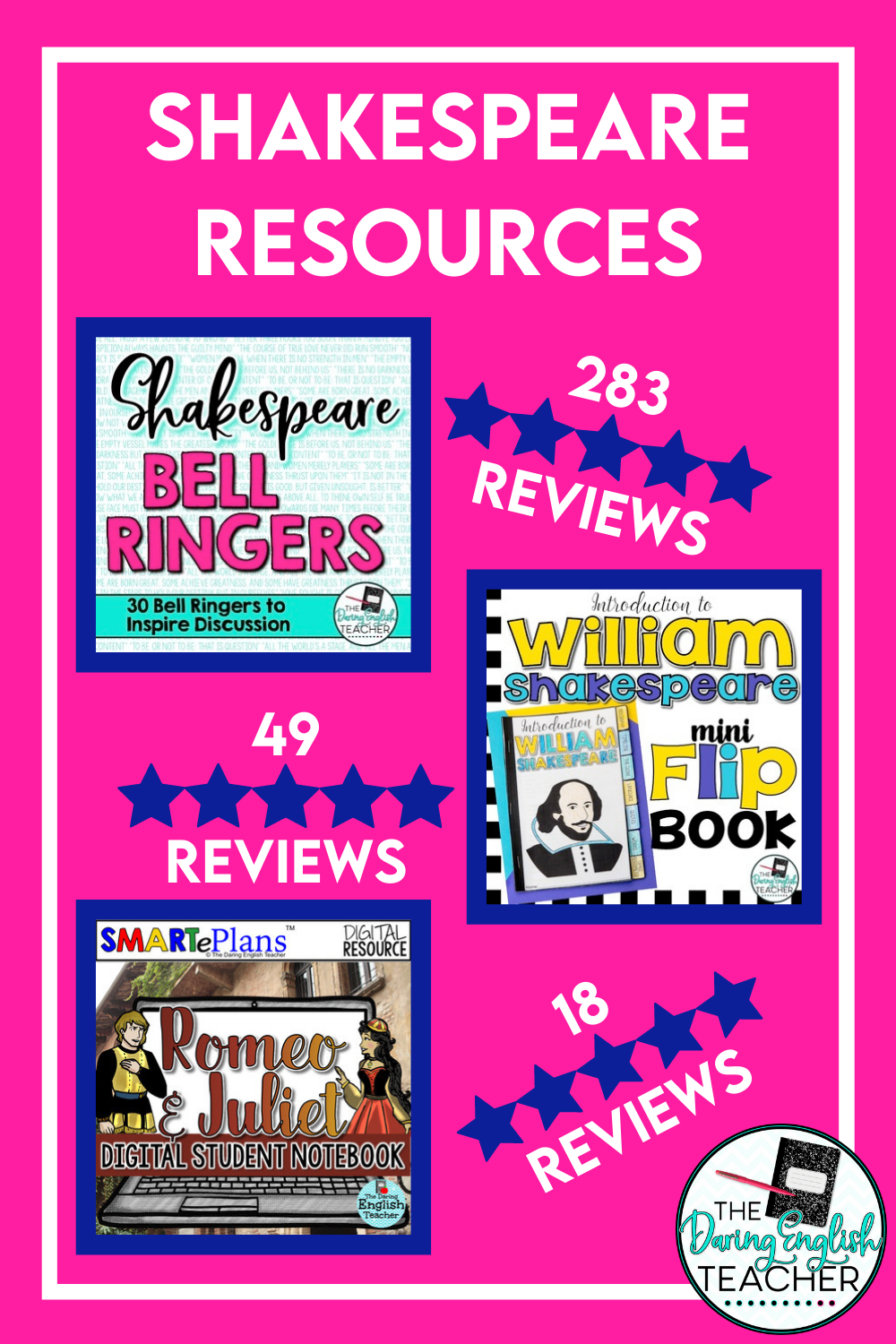Shakespeare has been gone for 400 years and yet we still insist on keeping him in our classroom. Mention Shakespeare, and I can guarantee teens immediately put up a front. Breaking through that initial abrasiveness can sometimes become a hurdle – but pointing out Shakespeare’s relevancy is a great start to a study. Below are some quick thoughts you might consider sharing with students, as well as several resources you can use while teaching Shakespeare.
Shakespeare influenced our language.
You can find so many references in our English language directly from Shakespeare’s work. If your students have ever been tongue-tied or hoodwinked, they’re quoting Shakespeare. There is a definitive record of Shakespeare being identified as the sole user or the first user of many common words and phrases. Your students might enjoy focusing on phrases they do recognize instead of worrying about what seems confusing.
Shakespeare’s themes are timeless.
If you cut the language that feels outdated to students and get to the bare bones of the stories Shakespeare wrote, you’ll find emotional and masterful works. Romeo and Juliet is a prime example of a work that is showcased in pop culture over and over again. Give students the “bare bones” of some works and have them find cultural links to their favorite movies, shows, and books before getting started on a new work. I like to spark conversations with these Shakespeare Bell Ringers meant to work as discussion starters as we begin Shakespeare’s work.
Shakespeare’s characters are relatable.
We can all relate to the trouble that affects Shakespeare’s characters. The raw emotions of love, jealousy, anger, and hope are identifiable across the centuries. When you can help students read into character analysis and development, you can open up a new way of understanding the works and the relevancy of these classics. This is especially true if you’ve already done the above and had students identify relatable works from their era – they can extend to the specific characters from the work. Use an activity like my character analysis (this one is for Julius Ceasar) to help students organize their thoughts and connections.
Shakespeare is a conspiracy.
Even today there’s speculation on whether Shakespeare truly wrote all of his works. Was it really a one-man show? Was it a group of playwrights? Was it an aristocrat penning in secret? And, despite so many images of Shakespeare – we aren’t even sure we know what he looked like. Shakespeare’s printed portraits that we associate with his work actually didn’t debut during his lifetime. Students can work on their own interpretations of who he might have been or can read articles related to his life. You can use this informative flip-book activity to get started learning about the bard.
Despite the changes of the times, I still believe Shakespeare has a place in our English studies today. It rests on us to show students that there is a relevancy and help guide them to understanding the importance of understanding and connecting to universal themes and characters.





